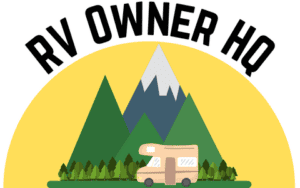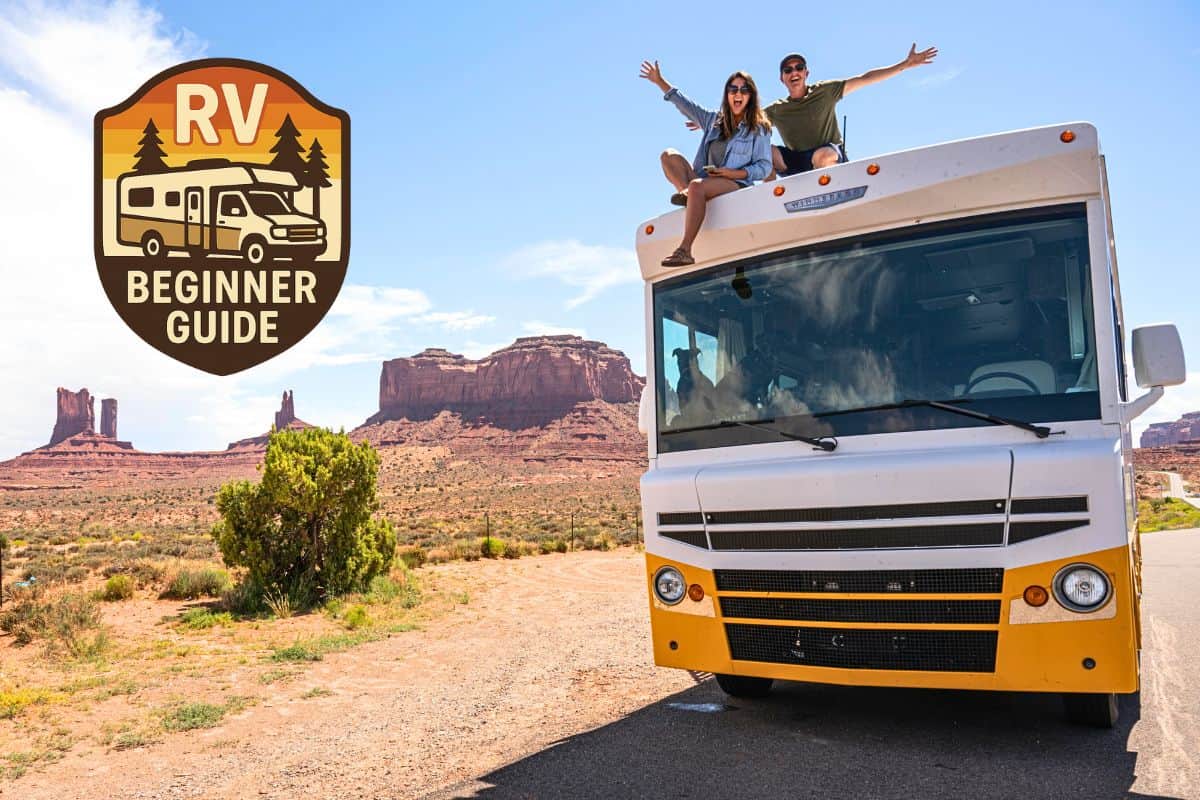So, you’ve just bought your first RV?
Congratulations! Whether it’s a travel trailer, motorhome, or fifth wheel, you’re about to embark on one of the most exciting adventures of your life.
If you’re feeling a bit overwhelmed right now though, don’t worry, as you’re not alone. Every RVer started where you are.
As someone who was once a complete newbie (and made plenty of mistakes along the way!), I wanted to share the top 10 things you need to know before hitting the road, in this RV beginner guide. These tips come from real-world RV experiences shared by fellow RVers just like you.
RV Beginner Guide (RV Life Road Map)
1. Keep It Simple: All You Really Need Is a Camper, Fuel, & a Sense of Adventure
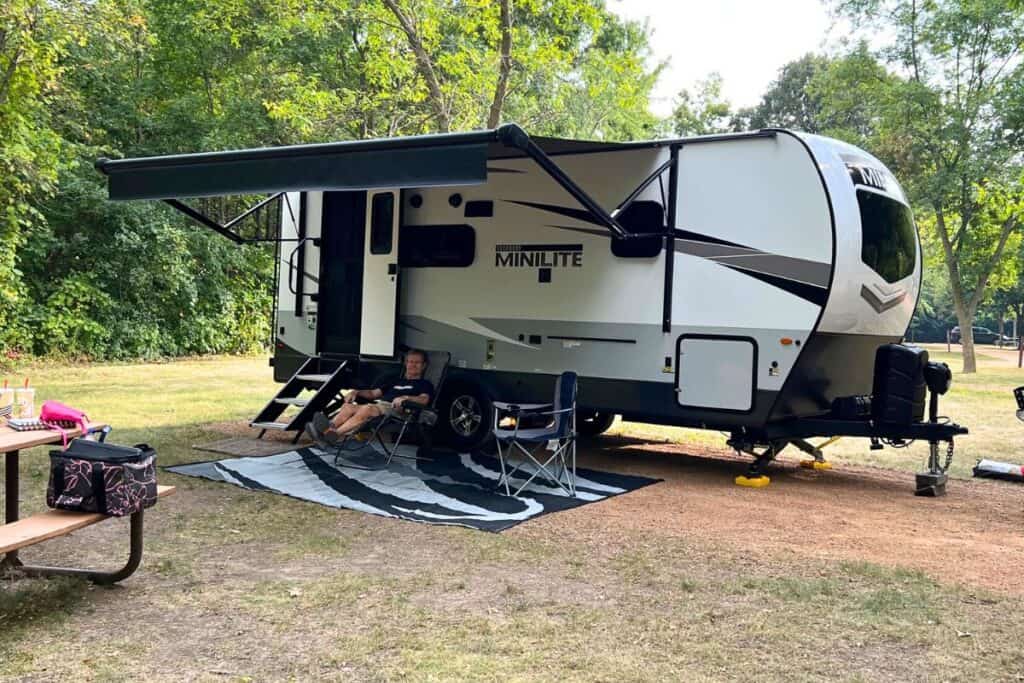
First things first, don’t get overwhelmed!
It’s easy to fall down the rabbit hole of “things you absolutely must have” before your first trip. The truth is, at the most basic level, all you need is your RV, some fuel, and a readiness for adventure.
Yes, you’ll want to be prepared (and we’ll cover that), but don’t let the details stop you from getting started. Remember why you bought an RV in the first place, to have fun and make memories!
2. Essential RV Gear: Start with the Basics & Add as You Go
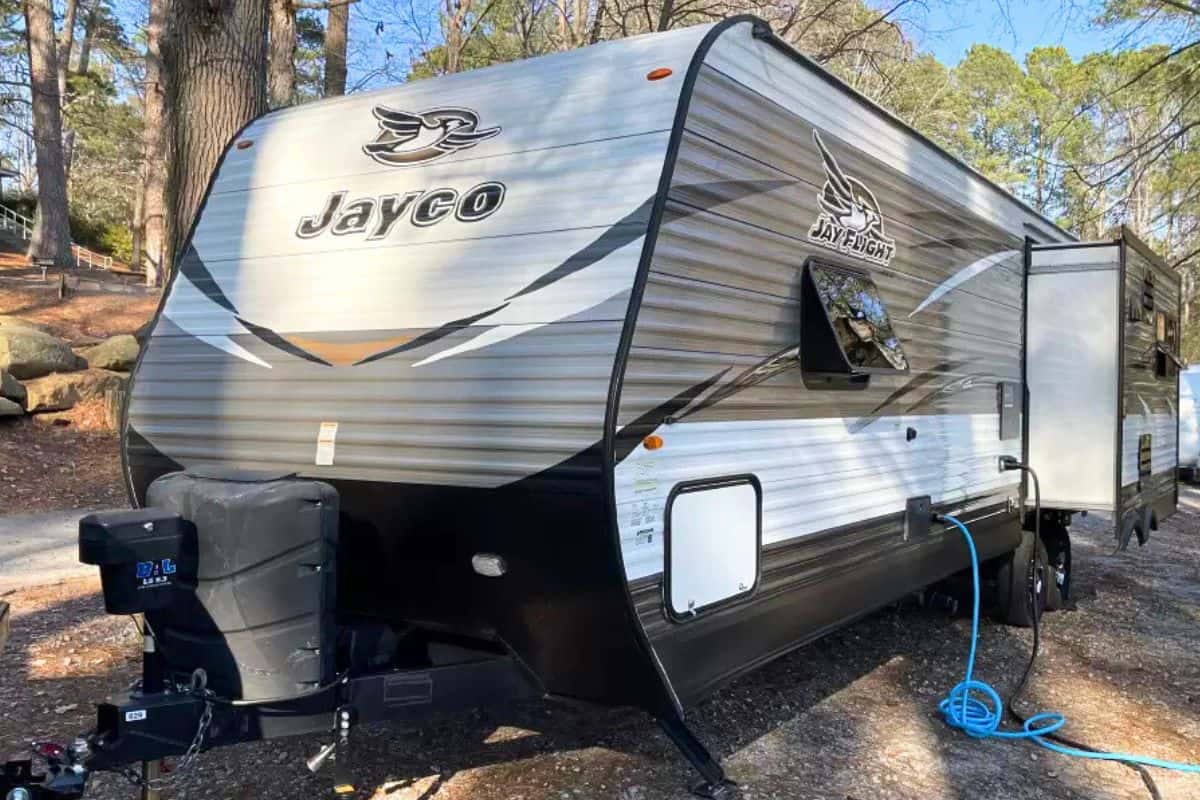
While you don’t need everything under the sun, a few key RV accessories will make your RV life much easier and safer:
- Leveling Blocks: These snap-together blocks are like adult Legos that help level your rig and provide support for stabilizers on soft ground. (recommended leveling blocks)
- Wheel Chocks: These prevent your rig from rolling while parked and are mandatory for safety. (recommended wheel chocks)
- Surge Protector: Protect your RV’s electrical system with either a 30 or 50-amp surge protector, depending on your rig. (recommended 30-Amp) (recommended 50-Amp)
- Dedicated Freshwater Hose: Never use a regular garden hose. Get a white or blue hose specifically designed for potable water. (recommended freshwater hose)
- In-line Water Filter & Pressure Regulator: Keeps sediment and contaminants out of your freshwater and maintains proper water pressure. (recommended water filter) (recommended pressure regulator)
- Sewer Hose: A good quality, durable sewer hose with secure fittings is worth every penny. Also, consider getting an extension and an elbow adapter. (recommended sewer hose)
- Tank Treatment Chemicals: Keeps odors at bay and helps break down waste in your black tank. (recommended treatment)
- First Aid Kit: A well-stocked first aid kit is a must for handling minor injuries when you’re far from help. (recommended first aid kit)
- Basic Tool Kit: Every RVer needs a basic tool kit for minor repairs that includes items like a hammer, rubber mallet, set of screwdrivers, pliers, wrenches, zip ties, and always handy duct tape. (recommended basic tool kit)
- Roadside Emergency Kit: Every RVer needs a roadside emergency kit that includes items like reflective triangles, jumper cables, flashlights, and basic tools for roadside emergencies. (recommended roadside kit)
3. Slow Down: You Have Nowhere to Go & All Day to Get There
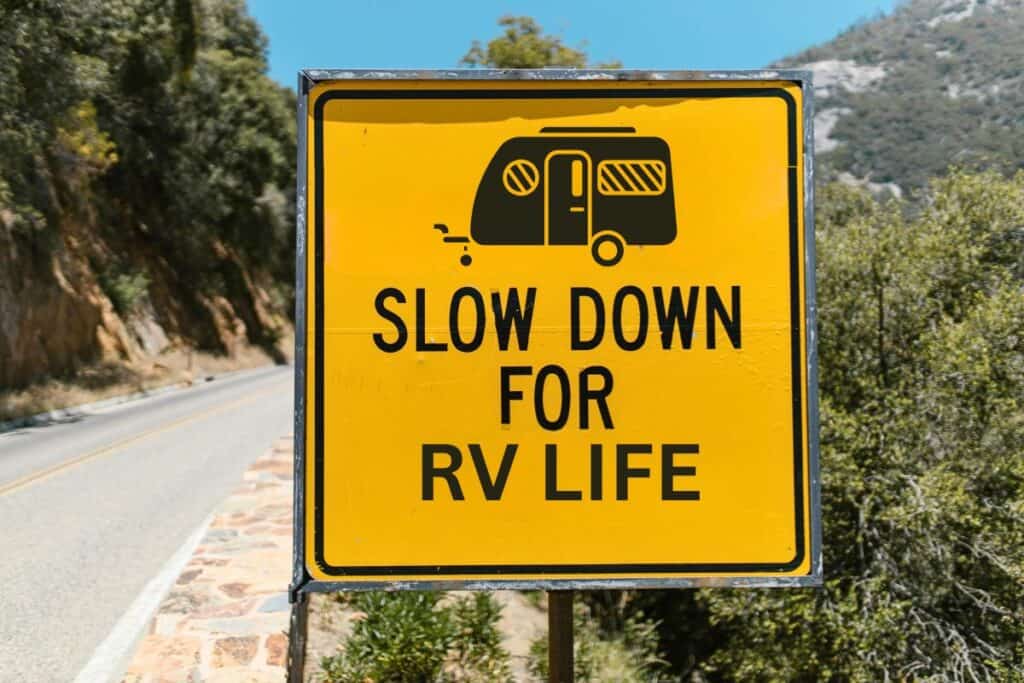
This might be the most important advice of all: Don’t rush.
Mistakes and accidents happen when you’re feeling pressed for time. Whether at a dump station with people waiting behind you, trying to make checkout time, or dealing with any other situation that makes you feel hurried, take a deep breath and slow down.
The truth is, hurrying rarely makes things go faster anyway, it just makes them go wrong. And when things go wrong with an RV, it usually costs money.
4. Know Your Tires: They’re Your Lifeline on the Road
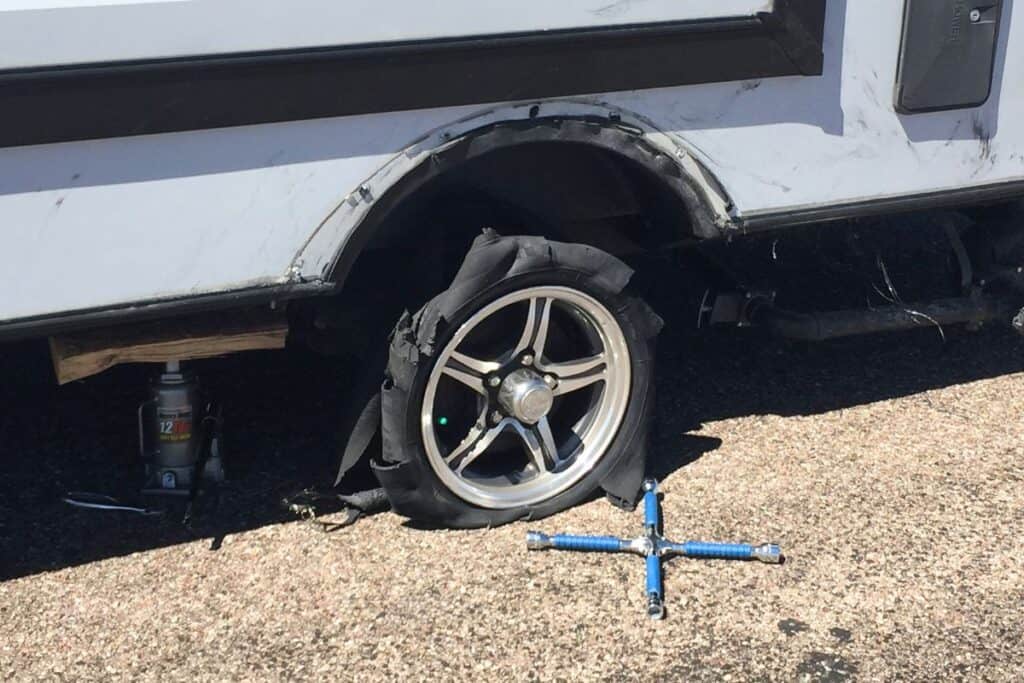
If there’s one thing that can ruin your trip faster than anything else, it’s tire trouble. Here’s what you need to know:
- Don’t Forget the Spare: Don’t just assume your RV has a spare, make sure it’s there and in good working order.
- Monitor Tire Pressure/Temperature: Keep tires at the recommended PSI and check regularly, especially in changing temperatures. Also, it’s a good idea to check their temperature with an infrared temperature gun. A hot tire is often the first warning sign of trouble.
- Check the Date Code: Even on brand-new RVs, the tires might not be new. Look for a four-digit number on the sidewall that indicates the manufacturing date.
- Understand Load Capacity: Tire rating matters. For example, a 9,200 lb trailer needs 10-ply E-rated tires, not 8-ply D-rated ones.
Remember, your tires are the only thing between your camper and the asphalt. It’s always better to be safe than sorry.
5. Know Your Measurements: Height, Length, & Weights
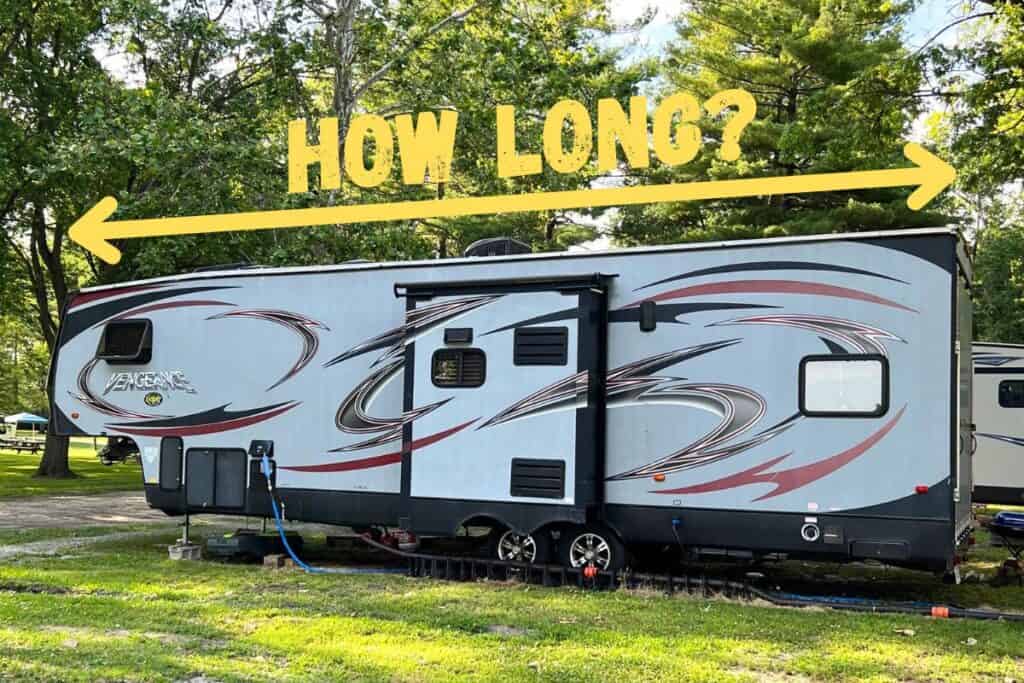
RV measurements might seem trivial until you’re barreling toward a 10-foot 4-inch tunnel in a 10-foot 8-inch rig.
- Height: Memorize your exact height and consider writing it on a sticky note in your cab.
- Length: Know your total length from the front bumper to the back bumper. Many scenic routes, especially in national parks, have length restrictions.
- Unloaded Vehicle Weight/Dry Weight: This is what your RV weighs empty, directly from the factory. It’s your baseline weight.
- Cargo Carrying Capacity (CCC): This tells you how much weight you can add to your RV with people, belongings, water, and supplies.
- Gross Vehicle Weight Rating (GVWR): The maximum weight your RV can safely be when fully loaded. Exceeding this is dangerous and illegal.
6. Embrace Boondocking: Who Doesn’t Love Free Camping
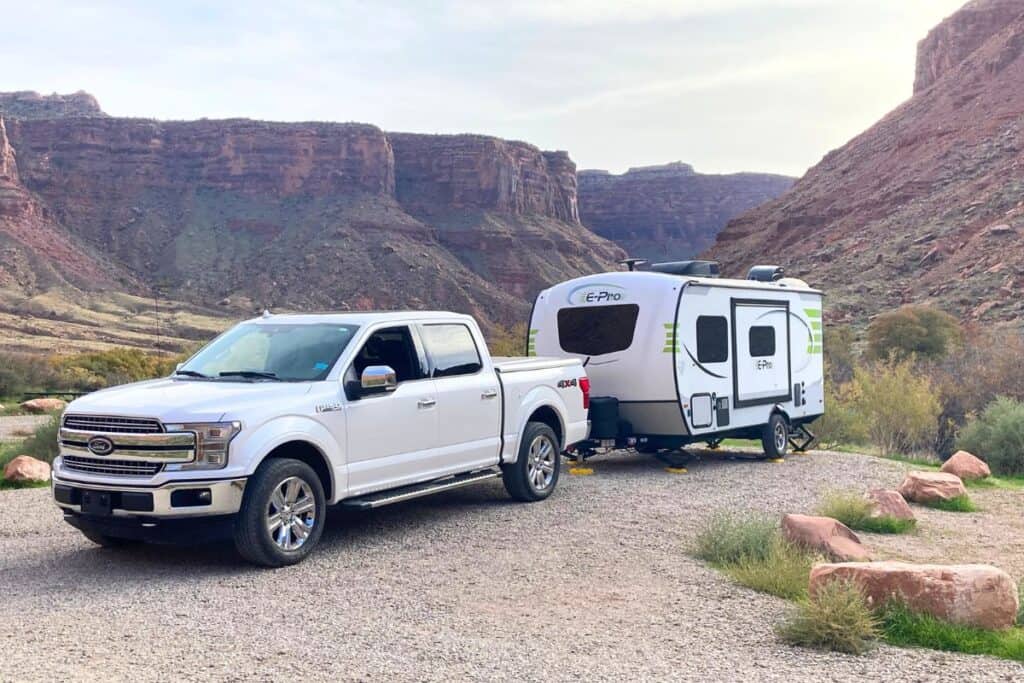
If you’re new to RVing, the idea of spending the night in a Walmart parking lot might seem strange. But “boondocking” (camping without hookups) is a valuable skill and can save you money while offering flexibility.
Stores like Walmart, Cabela’s, and Cracker Barrel often allow overnight RV parking. The AllStays app (more on that later) can tell you which locations permit overnight stays.
Boondocking also includes staying on Bureau of Land Management (BLM) land, particularly common in the western states, where you can often camp for free for up to 14 days.
7. Understand Your Tanks: Fresh, Gray, & Black
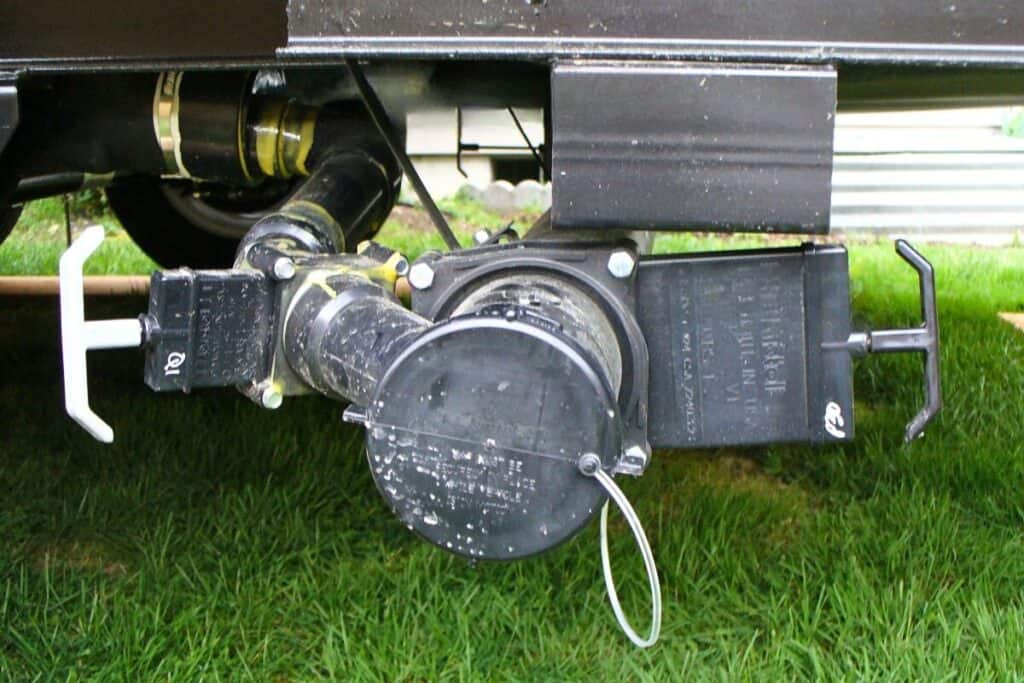
Understanding your RV water and waste systems is crucial, especially when boondocking:
- Fresh Water Tank: Periodically clean it with a small amount of bleach (Mix the correct bleach-to-water ratio (typically 1/4 cup of bleach per every 16 gallons of water/tank capacity), then thoroughly rinse and flush the tank.
- Gray Water Tank: This collects water from your sinks and shower. To conserve space, consider using a bucket in your sink for hand washing and dishwater, then disposing of this water on plants outside (if using biodegradable soap).
- Tank Indicators: Don’t trust them! Those lights telling you how full your tanks are often inaccurate.
- Black Tank Treatments: These special formulas break down solid waste and toilet paper while controlling odors. You can find them as liquid, powder, or drop-in pods.
- Gray Tank Treatments: While not always necessary, these can prevent odors from food particles and soap scum. If your gray tank starts smelling, a treatment can quickly solve the problem.
8. Plan Adaptable Routes: Fixed Points with Flexibility Between
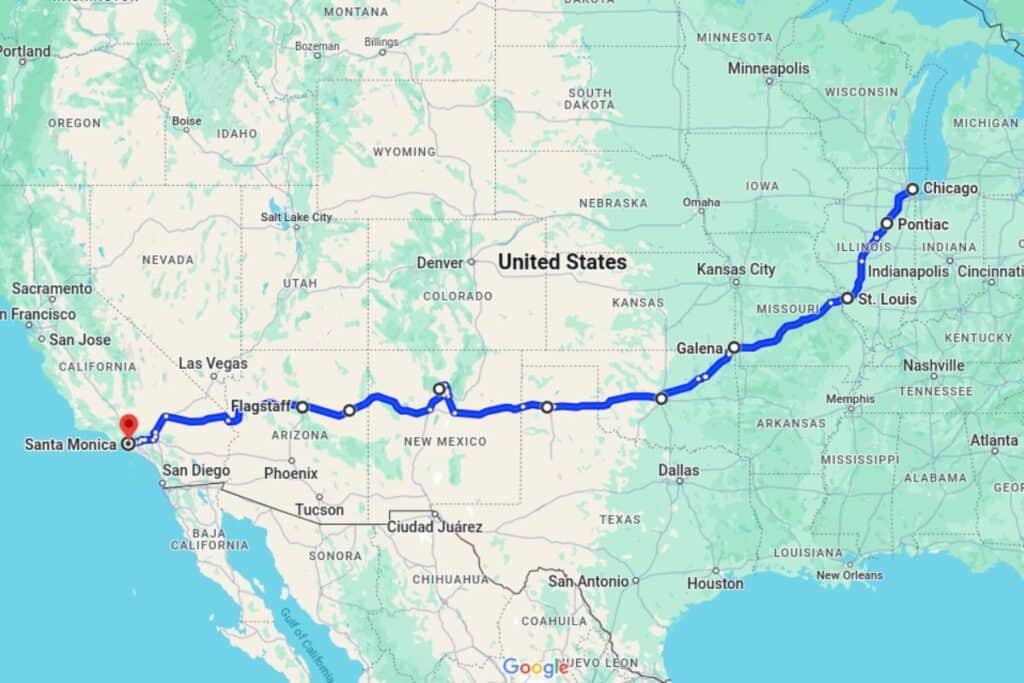
The best trip planning combines structure and spontaneity:
- Identify your must-see destinations and make reservations for those, especially in high-demand areas like coastal Maine or popular national parks.
- Leave wiggle room between these fixed points to discover unexpected gems.
- Talk to fellow RVers, they’re a treasure trove of information about local attractions and hidden spots.
- Download the AllStays app, it’s invaluable for finding campgrounds, free overnight parking, dump stations, and BLM land.
Looking for some RV road trip ideas? If so, check out our blog post “12 Amazing Summer RV Road Trips You Have to Take!“
9. Communicate Effectively: Everyone Needs a Role
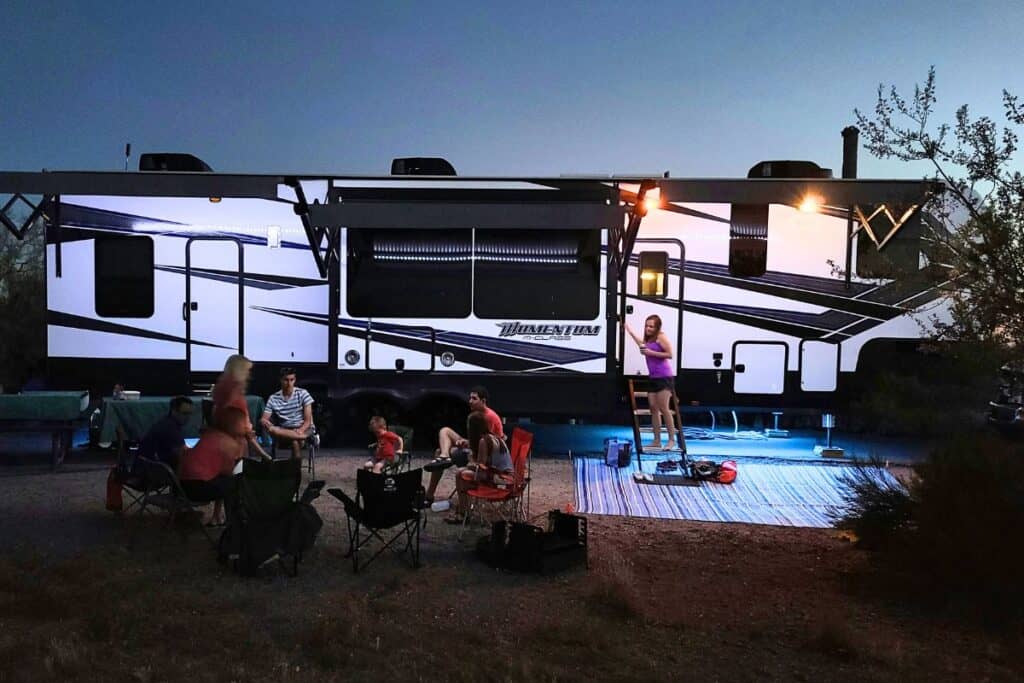
RVing with family or friends adds an extra layer of complexity to the camping experience.
Because of this, clear communication is essential, especially during critical moments like backing into a site or setting up camp.
Before you reach your destination, talk about who does what. Maybe the kids stay in the car while you’re backing in. Perhaps one person handles the electrical hookup while another deals with water. Having defined roles prevents confusion and frustration.
And here’s a golden rule: avoid the blame game. When something inevitably goes wrong (and it will), resist the urge to snap at each other with “How could you have done that?” Instead, wait until everyone’s calm, perhaps over breakfast the next day, and talk about how to handle things better next time. Your relationships will thank you.
10. Document Your Journey: Capture the Good, the Bad, & the Hilarious
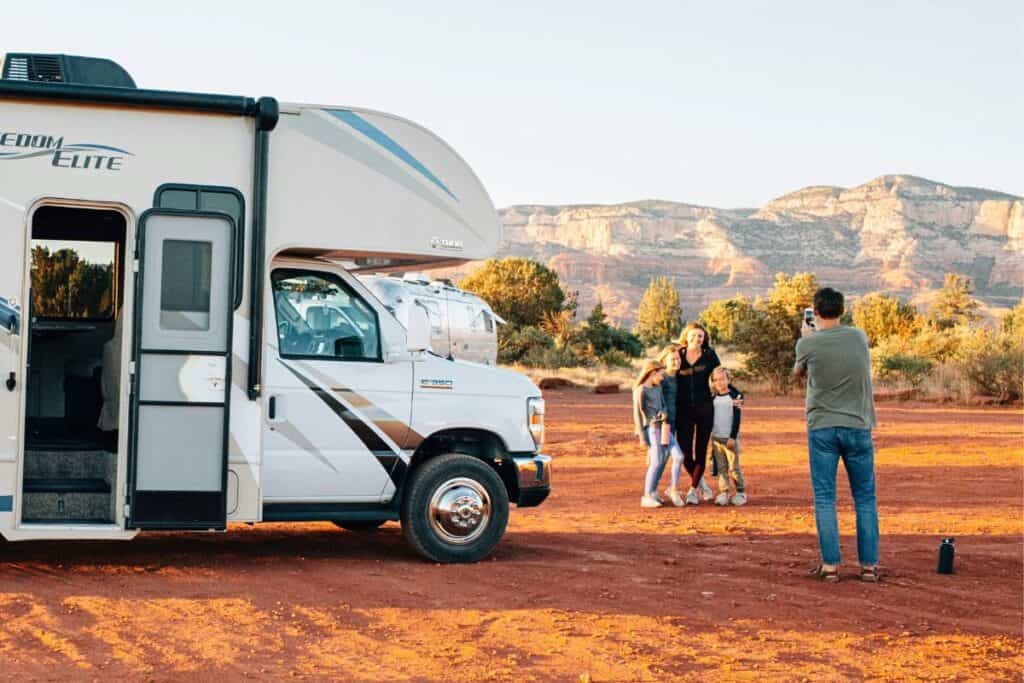
Finally, make sure you document your adventures. Take photos, keep a journal, shoot videos, or start a blog, whatever works for you. Even having your kids write one sentence about each day can create precious memories.
Also, don’t just record the picture-perfect moments. Include the mishaps and challenges too. Trust me, those stories of what went wrong often become the funniest and most cherished memories when you look back.
Also, at the end of each trip, make notes about what worked and what didn’t. What items did you pack but didn’t use? What did you wish you’d brought? This information is super handy for your next RV adventure and helps you evolve as an RVer.
RV Beginner Guide: Final Thoughts
RVing has its learning curve, but the community is incredibly welcoming. If you want to meet people at an RV park, just raise your hood or crack open a cold beverage, you’ll have new friends in no time.
Remember, everyone starts somewhere. Even those RVers who seem to have it all figured out were once standing exactly where you are now, wondering which end of the sewer hose goes where.
Stay confident, embrace the adventure, and know you’re about to create some of the best memories of your life.
Recent Posts
When cruising down the highway in your RV, the last thing you want is a tire blowout! Not only is it dangerous, but RV tire replacement isn't cheap, costing $200 to $300 per tire. The good news,...
Nothing ruins an RV adventure faster than a breakdown with no way to fix it. Because of this, every RVer should have a well-stocked RV tool kit for those unexpected roadside emergencies and campsite...
